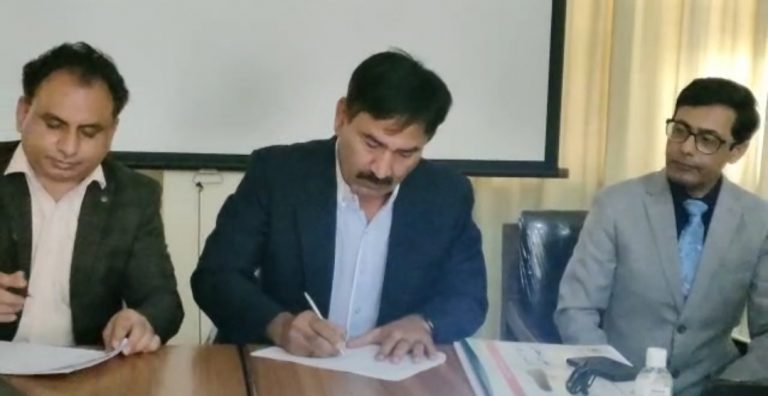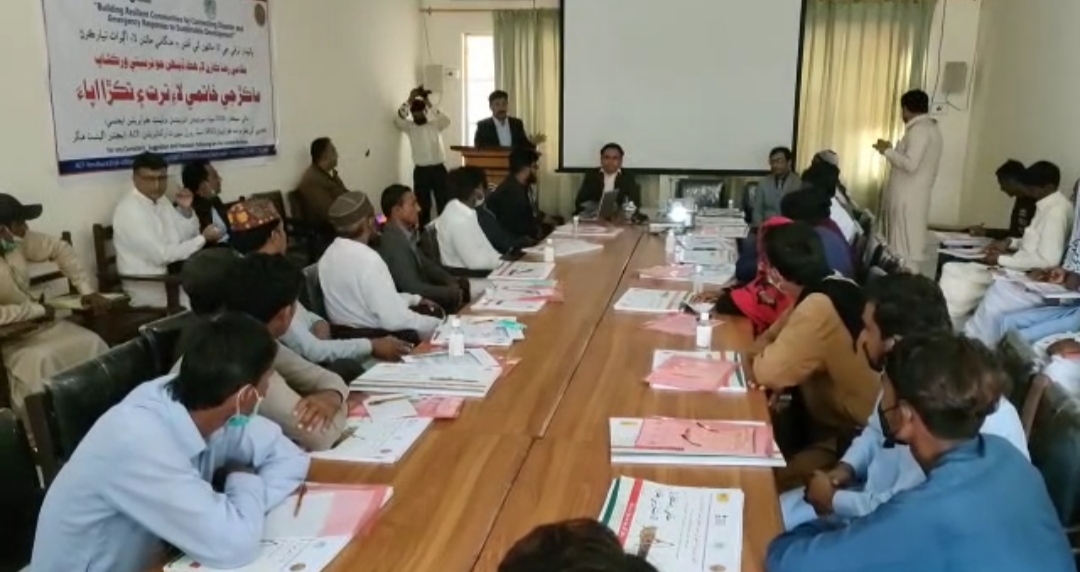
Sindh Agriculture University and Sindh Rural Support Organization sign MoU to organize training workshops.
Tando Jam
A Memorandum of Understanding was signed on Monday between Sindh Agriculture University (SAU) and Sindh Rural Support Organization (SRSO) on community training in three districts of Sindh to deal with desert locust and other disasters.
In this regard, a brief event and awareness workshop on “Building resilient communities by connecting disaster and emergency response to sustainable development” was held at the Crop Protection Faculty of Sindh Agricultural University, where the Dean of the Faculty Prof. Dr. Jan Mohammad Marri and Akram Sheikh, Project Manager, SRSO, signed the MoU.
The participants of workshop were informed that this training is being organized with the support of Action against Hunger and SIDA.
Addressing the workshop and field staff on the occasion, Dean Prof. Dr. Jan Mohammad Marri said that locust attacks are still a threat in Sindh. In the past locusts have damaged standing crops, orchards, vegetables on more than 200,000 acres in most districts of Sindh and caused financial losses to farmers, therefore modern methods of locust eradication are needed to save crops.
Dr. Marri said that a report of United Nations Food and Agriculture Organization (FAO) has revealed that locust attacks could cost the country a total of four billion dollars or 669 billion Pakistani rupees.
He said, “We have to train the farmers and the community to deal with these disasters, which would help in tackling these problems jointly.”

Akram Sheikh, Project Manager, Sindh Rural Support Organization said that trainees can help poor people in backward districts of Sindh. “After this training the trained team will also train the farmers of the backward areas of Thatta, Badin and Mirpurkhas who are suffering from various problems including locust.”
Dr. Imtiaz Ahmad Nizamani, Chairman, Department of Plant Protection and Dr. Imran Khatri, Chairman, Department of Entomology, Dr. Aftab Raza Jarwar and others also addressed on the occasion. (PR)
______________________